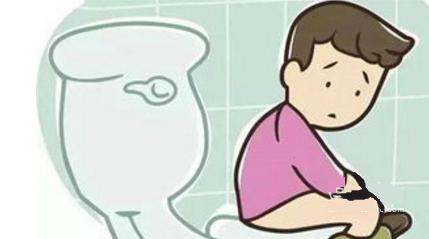Can Seminal Vesiculitis Cause Bowel Problems?
Date:2022-06-23 click:0
Most seminal vesiculitis is caused by retrograde infection, a typical male infectious disease. After the onset of this disease, symptoms of the urinary tract system will mainly appear, which usually does not cause difficulty in defecation. If defecation is difficult, you still need to go to the hospital for corresponding examinations, most of which are caused by gastrointestinal diseases. Typical symptoms of seminal vesiculitis include frequent urination, urgency, and hematuria.
Seminal vesiculitis does not cause symptoms of complicated bowel movements, and there is not much of a connection between the two conditions. When it is found that stool difficulties are still related to intestinal diseases, it is necessary to go to gastrointestinal endoscopy in time to diagnose the cause. The most important symptom of seminal vesiculitis is blood in the semen. This symptom can only be known after routine semen examination and cannot be diagnosed with the naked eye. However, some patients have more pronounced symptoms and may have signs of frequent urination and urgency in the early stage of the disease.

Patients with seminal vesiculitis may experience pain in the lower abdomen and groin during an acute attack. As the disease worsens, the degree of pain will also increase, and it will also be accompanied by symptoms such as dysuria, incontinence, and difficulty urinating. These are also typical symptoms of seminal vesiculitis. Only symptoms related to fever, chills, and hematuria may occur. These symptoms are more common in patients with acute illness.
In conclusion, seminal vesiculitis usually does not cause difficulty in defecation. This disease is a common cause of male infertility. If it is not treated in time, it may cause a series of conditions such as decreased sperm quality, decreased activity, and blood semen during ejaculation. And it may cause male infertility. In addition, patients may also experience urinary symptoms such as frequent urination, urgency, and dysuria, which also require timely anti-inflammatory treatment.
So how to treat seminal vesiculitis?
Some anti-inflammatory drugs can treat seminal vesiculitides, such as clarithromycin, minocycline, and ofloxacin. Because of its bacterial factors, it is only a tiny part of the factors. Just before ten days or two weeks, the signs of the disease will be relieved. If there is an apparent bacterial infection, sensitive drugs can be used for a period, which is helpful for the recovery of seminal vesiculitis. But seminal vesiculitis is a chronic disease, and antibiotics in Western medicine can only relieve the illness but cannot eradicate it.
At this time, you can choose traditional Chinese medicine. Diuretic and Anti-inflammatory Pill has the main functions of clearing away heat and detoxification, promoting blood circulation and relieving pain, diuresis and dredging stranguria, anti-proliferation, anti-fibrosis, anti-calcification, sterilization, anti-inflammatory, and swelling. It will not produce resistance, drug resistance. It has a good effect on the treatment of seminal vesiculitis.
In addition, patients with seminal vesiculitis must develop good living habits:
Pay attention to daily life.
Maintain adequate rest and sleep.
Prevent excessive fatigue.
Have a regular sex life.
Do not drink too much.
Do not eat a lot of stimulating food.
Do not sit for a long time and long-term cycling,
Please do not live in a cold and damp place to prevent influenza and other infectious diseases.
You may also be interested in:



